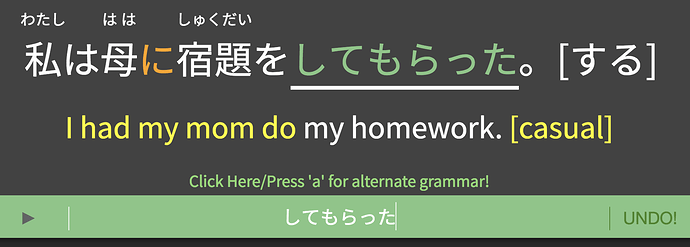Citing Wikipedia:
When using polite or respectful forms, the point of view of the speaker is shared by the speaker’s in-group (内 uchi ), so in-group referents do not take honorifics. For example, members of one’s own company are referred to with humble forms when speaking with an external person; similarly, family members of the speaker are referred to humbly when speaking to guests. Similarly, the out-group (外 soto ) addressee or referent is always mentioned in the polite style (though not necessarily with honorifics). [1]
Some nouns change completely for the same reasons, such as chichi and haha (“my father”, “my mother”) vs. o-tō-san and o-kā-san (“your father” and “your mother”, and they are also used to address one’s own parents respectfully). [2]
Now, there are many sentences on Bunpro that discordantly use the word 「お母さん」 together with the translation “my mother”. What is the reasoning behind this? Is this just an oversight? Or are there actually situations where these usages would be regarded as acceptable?
Below are some examples, taken from the first few grammar points of N5.
レストランでお母さんとご飯を食べる
I eat food with my mother at the restaurant.


